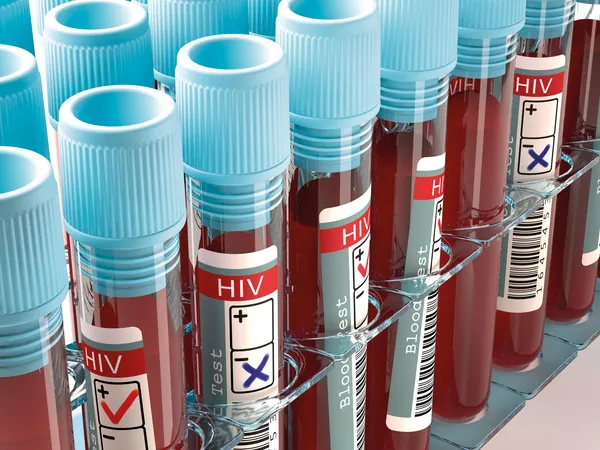
Breakthrough in HIV Vaccine Research: Promising Results from Germline Targeting Trials
2025-05-16
Author: Nur
HIV Vaccine Trials Show Hope with Innovative Germline Targeting Strategy
In a groundbreaking advancement in the fight against HIV, two recently published studies in *Science* reveal early successes in the quest for vaccines capable of inducing broadly neutralizing antibodies (bnAbs)—a game-changing development eagerly awaited worldwide. As HIV remains one of humanity’s deadliest foes, trailing only tuberculosis, these results ignite hope for better prevention methods.
Historically, efforts to develop effective HIV vaccines have stumbled, with late-stage trials yielding no successful candidates. The virus's rapid mutation rate complicates things, allowing it to evade immune responses and creating a vast array of circulating strains. While traditional antibodies often target specific variants, bnAbs represent a more robust defense by targeting regions of the virus resistant to these mutations.
Encouraging Findings from Phase I Trials
Both studies showcased the potential of a germline targeting strategy, where an initial vaccine dose activates rare B cells responsible for producing bnAbs. Researchers can then guide these cells' development to enhance their antibody-producing capabilities.
At the Amsterdam University Medical Center and Rockefeller University, researchers reported that their Phase I trial, involving 47 patients, demonstrated an immune response indicating successful targeting of necessary cells. "We’re on the right track," stated Dr. Rogier Sanders, emphasizing the precision achieved in targeting these cells.
Global Collaboration Yields Positive Outcomes
In another promising development, teams from the Scripps Research Institute, the International AIDS Vaccine Initiative (IAVI), and the University of Nairobi shared favorable results from two separate Phase I trials with almost 80 participants across North America and Africa. They assessed mRNA nanoparticle-based germline targeting vaccines, focusing first on priming the immune response and subsequently confirming the effectiveness of booster doses.
William Schief, a prominent immunologist and one of the study's senior authors, highlighted the significance of their findings: "We’ve demonstrated in humans that we can ignite the desired immune response with one shot and escalate it with a booster. These trials are proof of concept for a customized approach that could revolutionize not just HIV vaccines, but vaccine design across the board."
A New Era in Vaccine Development?
With these positive results, researchers remain optimistic about stepping closer to effective HIV vaccines. The implications of these studies may extend beyond HIV, offering insights that could enhance vaccine strategies for various infectious diseases. The medical community watches with bated breath as these pioneering trials pave the way for future breakthroughs in global health.




 Brasil (PT)
Brasil (PT)
 Canada (EN)
Canada (EN)
 Chile (ES)
Chile (ES)
 Česko (CS)
Česko (CS)
 대한민국 (KO)
대한민국 (KO)
 España (ES)
España (ES)
 France (FR)
France (FR)
 Hong Kong (EN)
Hong Kong (EN)
 Italia (IT)
Italia (IT)
 日本 (JA)
日本 (JA)
 Magyarország (HU)
Magyarország (HU)
 Norge (NO)
Norge (NO)
 Polska (PL)
Polska (PL)
 Schweiz (DE)
Schweiz (DE)
 Singapore (EN)
Singapore (EN)
 Sverige (SV)
Sverige (SV)
 Suomi (FI)
Suomi (FI)
 Türkiye (TR)
Türkiye (TR)
 الإمارات العربية المتحدة (AR)
الإمارات العربية المتحدة (AR)